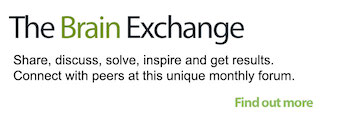Lessons in responsible leadership
Developments in the phone hacking inquiry raise more questions about the moral responsibility of leaders. In fact this news item, coming after a succession of scandals involving financial institutions and corrupt MPs, will ensure that the debate around business ethics and corporate responsibility will continue for some time.
I am intrigued by Rebekah Brooks’ statement that she had “no knowledge” of the phone hacking taking place at the News of the World when she was in charge of the paper. It might be argued that leaders of large complex organisations can’t be expected to know everything. Max Clifford, probably the UK’s best known publicist and now in jail, came to the defence of Ms Brooks saying she may not have known every detail about day to day goings on in the company. To some extent this is true. We all know of disastrous bosses who attempt to micro manage, not trusting managers to get on with the job and attempting to control everything. Such an approach to leadership just doesn’t work. As a boss you can’t know and do it all – without effective delegation and trust the business simply won’t move forward. Furthermore, staff working for a control freak will quickly lose any commitment or motivation to do a good job.
So where do you draw the line? How can leaders make it their business to know what’s going on in their organisation while at the same time allowing others the right amount of discretion and autonomy? Well, there are many ways of keeping your ear to the ground so that you don’t lose touch with the day to day: regular meetings and chats with staff (formal and informal); asking questions now and again, especially when something doesn’t ‘feel right’; being quite clear with others about what you do and don’t need to know; effective communication processes; and so on.
But a more fundamental solution lies in the articulation and communication of values and then firmly embedding these in the organisation. Responsible management involves a commitment to transparency and honesty. Leaders should be clear about their own values, their expectations of others and preferred ways of working. I have worked with businesses where staff are actively involved in the identification and communication of values – it’s not always possible but it’s the best way of getting ‘buy in’ and real commitment. Once established, these values become central to everything the business does, from the way customers are treated to the recruitment and promotion of staff. Clear values help to inform decision-making. Where risky or controversial decisions are concerned, reference to values can often help identify the ‘right’ solution.
I don’t know whether Rebekah Brooks or News Corporation have ever given a thought to their values or moral code. Somehow I doubt it. If they had, they wouldn’t be in such a mess now. More importantly many people, including Milly Dowler’s family, might have been saved so much unnecessary distress.
Both comments and pings are currently closed.


















